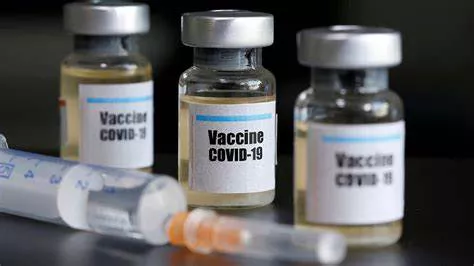The COVID-19 pandemic has brought unprecedented challenges to global health, leading to the rapid development and deployment of vaccines aimed at controlling the spread of the virus. Among these vaccines, the mRNA vaccines developed by Pfizer-BioNTech and Moderna have been at the forefront of vaccination efforts worldwide. However, as with any medical intervention, these vaccines have been associated with certain side effects. One of the most discussed and studied side effects is myocarditis, an inflammation of the heart muscle. This article delves into the incidence of myocarditis following COVID-19 vaccination, exploring its occurrence, risk factors, and implications for public health.
Understanding Myocarditis
Myocarditis is an inflammatory condition of the heart muscle (myocardium) that can affect the heart’s electrical system and reduce its ability to pump blood effectively. The inflammation can be caused by a variety of factors, including infections (particularly viral infections), autoimmune diseases, and exposure to certain toxins or drugs. Symptoms of myocarditis can range from mild, such as chest pain and fatigue, to severe, including heart failure, arrhythmias, and sudden cardiac arrest.
Myocarditis And Vaccination: An Overview
Vaccines have been one of the most effective public health tools in combating infectious diseases. However, like all medical interventions, vaccines can have side effects. Myocarditis is a rare but serious side effect that has been reported in association with certain vaccines, including the smallpox vaccine and, more recently, the COVID-19 mRNA vaccines. The emergence of myocarditis cases following COVID-19 vaccination has raised concerns among healthcare professionals, public health authorities, and the general public.
Incidence of Myocarditis Following COVID-19 Vaccination
The incidence of myocarditis following COVID-19 vaccination has been a subject of intense study and debate. According to data from the Centers for Disease Control and Prevention (CDC), the incidence of myocarditis is highest among young males, particularly those aged 16-24 years, following the second dose of the mRNA vaccines (Pfizer-BioNTech and Moderna). In this demographic, the incidence is estimated to be about 37-40 cases per million doses administered.
Age And Gender Differences in Incidence Rates
The risk of developing myocarditis following COVID-19 vaccination varies significantly by age and gender. Young males, particularly those aged 12-29 years, are at the highest risk. For example, studies have shown that in males aged 16-24, the incidence rate can be as high as 70-100 cases per million second doses. In contrast, females and older adults have a much lower risk, with incidence rates ranging from 1-10 cases per million doses.
SEE ALSO: How to Tell Myocarditis
Comparing Myocarditis Rates: Vaccine Vs. COVID-19 Infection
While the incidence of myocarditis following vaccination is a concern, it is essential to compare this risk to the risk of myocarditis associated with COVID-19 infection itself. Studies have consistently shown that the risk of myocarditis is significantly higher following a COVID-19 infection than after vaccination. For instance, a large study published in the New England Journal of Medicine found that the risk of myocarditis was about 16 times higher in individuals who contracted COVID-19 compared to those who were vaccinated.
Mechanisms Behind Vaccine-Associated Myocarditis
The exact mechanisms leading to myocarditis following COVID-19 vaccination are not entirely understood. However, it is hypothesized that an immune-mediated response triggered by the mRNA in the vaccines could play a role. The mRNA vaccines work by instructing cells to produce the spike protein of the SARS-CoV-2 virus, which then stimulates an immune response. In rare cases, this immune response might target the heart muscle, leading to inflammation.
Clinical Presentation And Outcomes of Vaccine-Associated Myocarditis
The clinical presentation of myocarditis following COVID-19 vaccination typically occurs within a few days to a week after the second dose. Symptoms commonly include chest pain, shortness of breath, and palpitations. Most cases reported have been mild, with patients responding well to standard treatments, including anti-inflammatory medications. Hospitalization is often required for observation, but the majority of patients recover fully without long-term complications.
Public Health Implications
The identification of myocarditis as a potential side effect of COVID-19 vaccination has significant public health implications. It is crucial to communicate the risks and benefits of vaccination transparently to the public. While the risk of myocarditis is real, it is relatively rare, and the benefits of vaccination—preventing severe COVID-19, hospitalization, and death—far outweigh the risks. Public health strategies must focus on monitoring vaccine safety, conducting
ongoing research to understand the mechanisms behind vaccine-associated myocarditis, and educating healthcare providers and the public about the signs and symptoms of myocarditis.
Ongoing Surveillance And Research
Vaccine safety is a top priority for public health agencies globally. Ongoing surveillance systems, such as the Vaccine
Adverse Event Reporting System (VAERS) in the United States, continue to monitor the incidence of myocarditis and other adverse events following vaccination. In addition, research studies are underway to better understand the long-term outcomes of vaccine-associated myocarditis and to identify any potential risk factors that could predispose individuals to this condition.
Conclusion
In conclusion, while myocarditis is a rare side effect of COVID-19 mRNA vaccines, it is essential to consider this risk in the broader context of the benefits of vaccination. The incidence of myocarditis following vaccination is highest among young males, particularly after the second dose, but remains a rare event overall. The risk of developing myocarditis from a COVID-19 infection is significantly higher than the risk associated with vaccination, highlighting the importance of continuing vaccination efforts. Ongoing research and surveillance are critical to understanding and mitigating the risks of myocarditis while ensuring the continued success of vaccination programs in controlling the COVID-19 pandemic.

